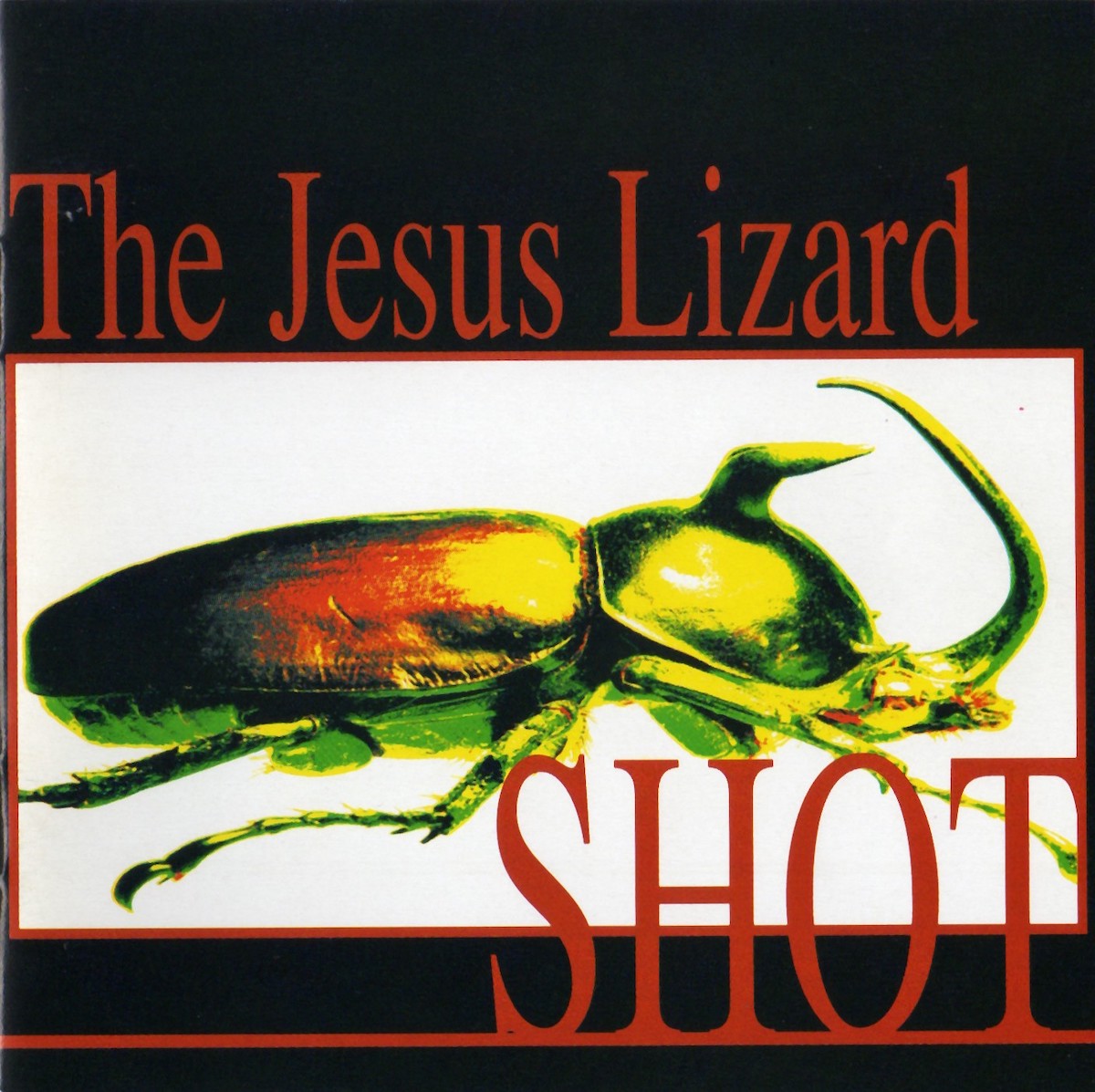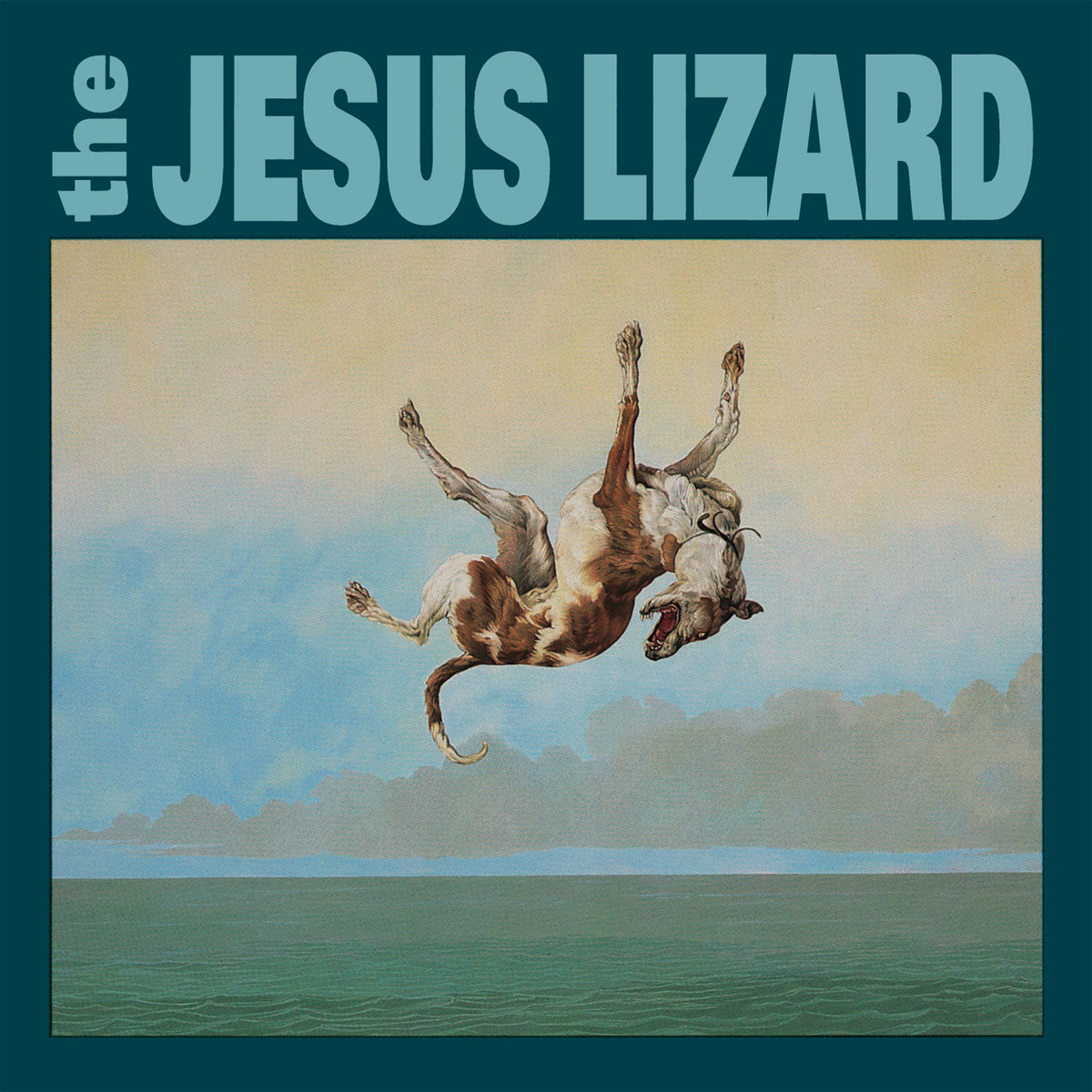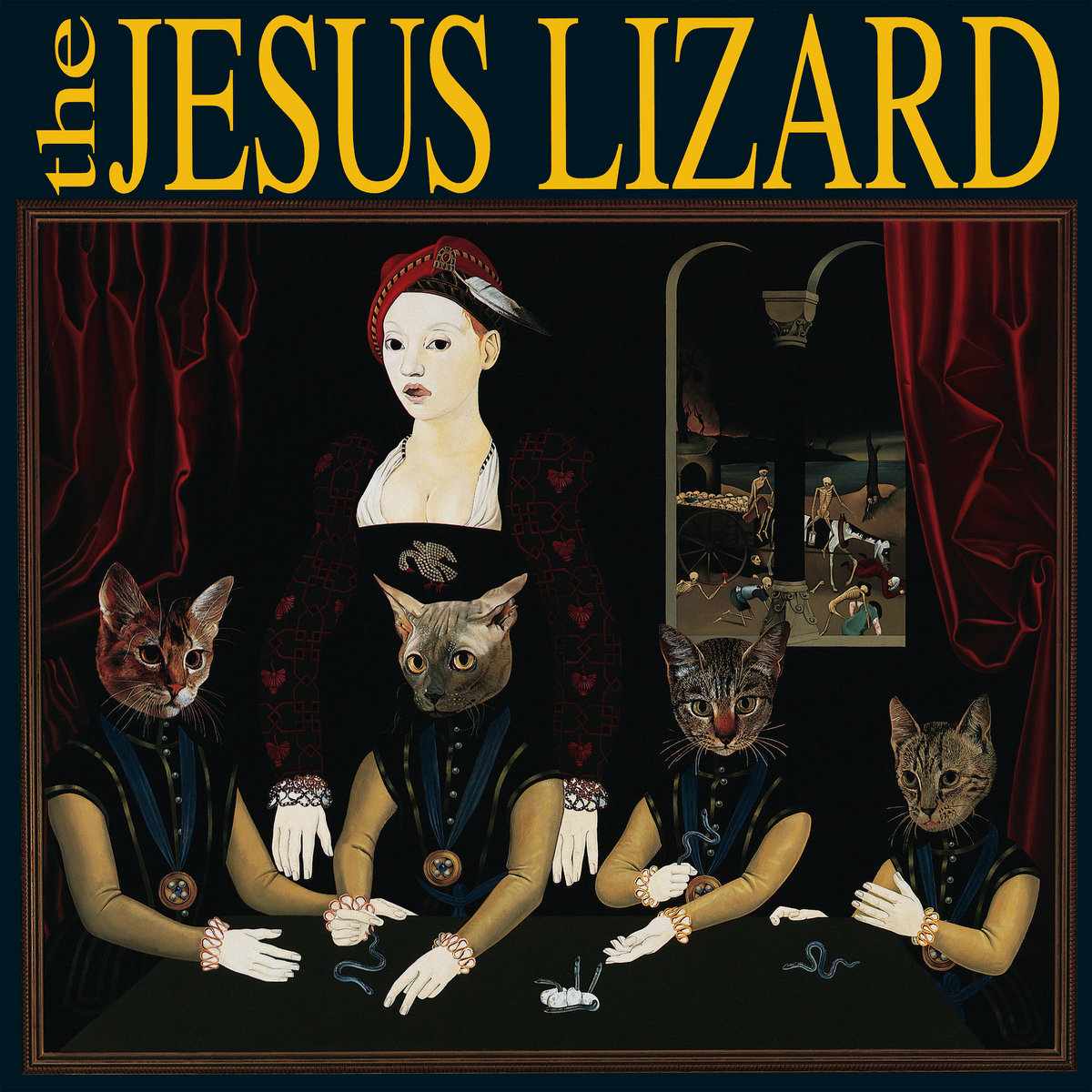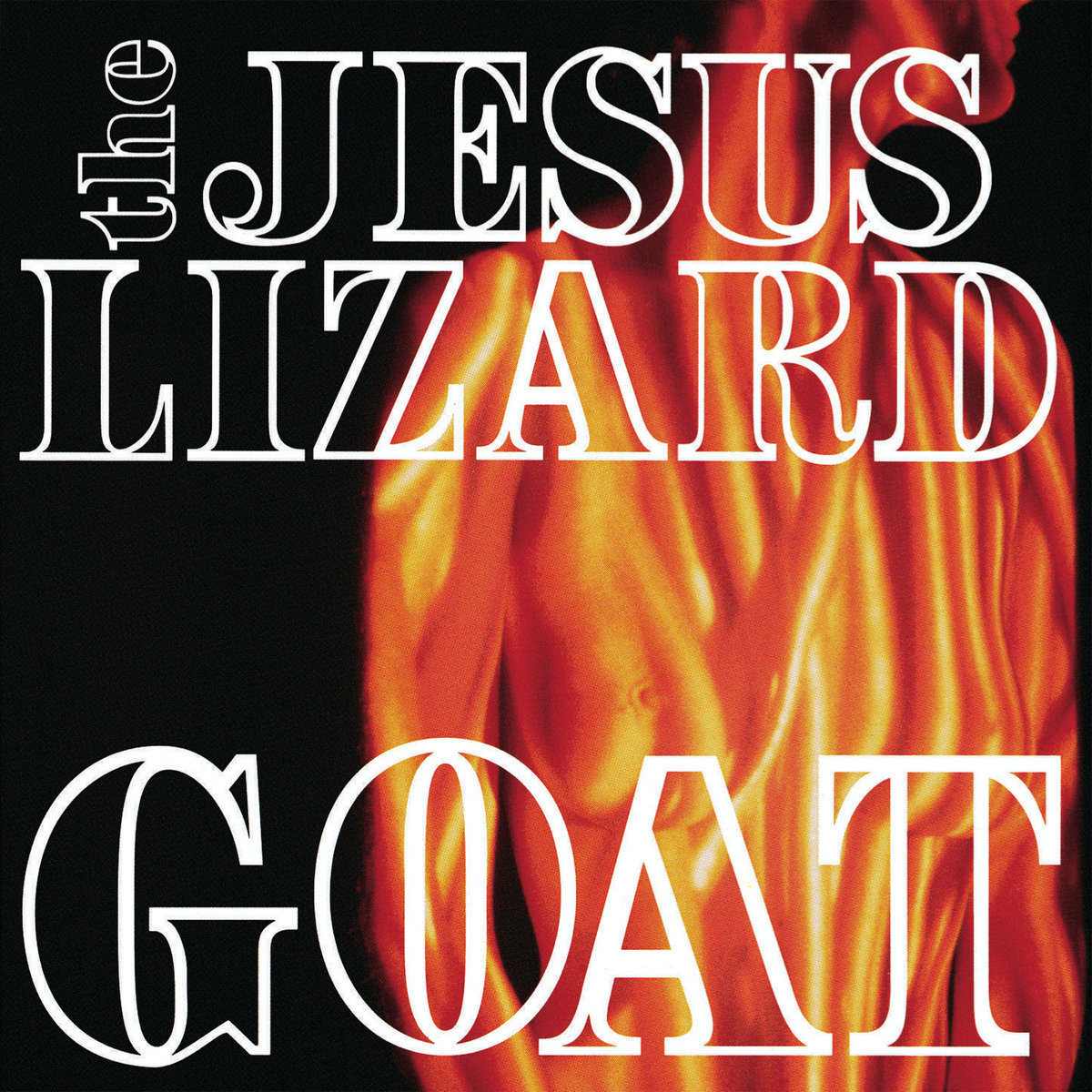The news of Jesus Lizard's comeback with the new album Racks was announced a few weeks after the death of Steve Albini, tutelary deity of the Chicago group and its producer for all four albums on Touch and Go, the cult independent rock label. The seventh album is not produced by Albini, but by Paul Allen: nothing bad, even if we would have liked his last seal as producer on what he himself did not hesitate to define as the “best band of the 90s”.
Certainly the heart of American noise rock of that decade is contained in some of the cornerstones produced by Steve Albini with Jesus Lizard (nickname of the feathered basilisk, a lizard that runs on the surface of the water, waving its legs wildly). The history of the latter, born from the dissolution of Scratch Acid (legendary Texan noise-punk group, from which the singer David Yow and the bassist David Wm. Sims come), is intertwined not only with that of Albini, but also with that of Nirvana by Kurt Cobain, great admirer of Scratch Acid and Jesus Lizard: together Nirvana and Jesus Lizard share the split single Puss / Oh, The Guilt (1993), but it immediately becomes clear that the music of Jesus Lizard is too difficult to reach the general public and aspire to commercial success: the wild and raucous, at times psychotic, singing of the rowdy David Yow, with his obsession for images truculent and scatological, the sharp and cutting guitar of Duane Denison (in whose style the influences emerge not only of punk and blues, but also of the contemporary music of Cage, Nono, Berio, Stockhausen and Glenn Branca), the powerful rhythm section and pounding by Sims and Mac McNeilly (on drums) have nothing melodic about them, they defy every harmonic rule, becoming the perfect soundtrack to the nihilism and restlessness of contemporary man.
Jesus Lizard's music is not accommodating, conciliatory, but disturbing, claustrophobic, obsessive. It may seem monotonous and repetitive at first listen, but in reality it has an absolutely unique and recognizable style, albeit indebted to the sick blues of the Birthday Party, the first Nick Cave, the Dadaist madness of Captain Beefheart and the high-alcohol blues-rock by Beasts of Bourbon.
We retrace his artistic story, through the seven studio albums, all with titles of a single four-letter word.

On the sixth album Blueproduced by Andy Gill of Gang of Four, with Jim Kimball (Laughing Hyenas and Mule) on drums in place of the resigned Mac McNeilly, the band attempts the surprise effect, taking unusual paths compared to its typical sound. The announced and much rumored post-rock turning point actually consists of a more refined sound, in which electronic effects and keyboards of new wave ancestry emerge. Jesus Lizard are almost unrecognizable, creators in certain passages of a harmless, predictable and predictable rock, balanced between assorted experimentalisms and dull chart-topping hard rock. The hectic and convulsive ones are the exception I Can Learn And Cold Waterworthy of the best moments. It is no coincidence that after the two major works, Shot And Bluethe band will break up.

With Shotthe band's fifth album and first release for the major label Capitol, the downward spiral begins: the break with Albini on the one hand, known for his aversion to the large record market, and on the other with the more intransigent public, who interprets the move to the major label as a betrayal of the original punk spirit. The album receives mixed reviews: for some it is a courageous attempt to evolve, for others a minor attempt. Producer Garth Richardson (aka GGGarth) smooths out the rough edges and smoothes out the sound, which loses its viciousness and brutality and tends towards a more classically hard rock style: nothing to complain about the instrumental performance, which is excellent as usual, but it can already be felt a certain decline in inspiration.

Nobody would have ever expected Jesus Lizard to return with a new album in 2024, Racksthe seventh in the discography, released by Mike Patton's independent label Ipecac (Faith No More, Fantômas, Tomahawk, Mr. Bungle). Despite the no longer young age of the band members, who returned to the original lineup (already in its classic line-up with the 2009 reunion), Jesus Lizard are still in great shape and have not lost a iota of their energy, power and impact force. We are certainly not at the levels of their masterpieces Goat, Liars And Downbut the group has returned to hitting hard as it once did, with its typical granitic and corrosive noise/punk-rock, which is more reminiscent of the impetuous sound of Liars than the tamer one of the previous tests. It's not Jesus Lizard's best album, but it's the best they could make after a long hiatus.

The drum machine from the debut EP Pure (1989) was finally replaced by a real drummer, the versatile Mac McNeilly, a great jazz enthusiast, capable of ranging between the swing of jazz and the more frenetic rhythms of punk and noise. The first album Head brings the band's formula to further technical maturation: the protagonists are the elegant jazzy touch of the drums, the boogie-rock and blues guitar phrasings and above all the exasperated vocality of Yow who, with his awkward singing and his slurring perverse and twisted halfway between Captain Beefheart, the first Nick Cave, David Thomas of Pere Ubu and a mocking voice like Johnny Rotten, he stages his hyper-realist lyrics with obscene content.

Down is the band's fourth album, the most professional and sophisticated of their discography. Mastered at Abbey Road Studios in London, it is the work that gives more space to melody, the one in which the instrumental technique is refined and the quartet's formula reaches a perfect balance between inspiration and compositional maturation. David Yow's singing almost normalizes, while what impresses above all is the sharp but elegant guitar of the brilliant Duane Denison, with all his boundless repertoire of effects and a chameleon-like ability to play the most disparate styles. The greater attention is paid to the song form and arrangements, as demonstrated by the soft, jazz-blues-inspired step of TheAssociate and the poignant ballad Horseembellished with Sims' keyboards and Yow's painful and desperate screams.

On the third album Liarsthe hardest and most granite ever made by the quartet, the shocked noise-blues of Goat leaves room for an even more corrosive, brutal and dynamite sound, excellently produced, which brings out the never too hidden roots influences (the southern rock-blues of ZZ Top, first of all). The experimental ambitions of Goat are channeled into more structured songs where the song format prevails (a definition to be taken with due caution) and the further technical maturation of the band is evident: some songs (among all, Boilermaker, Gladiators, Puss) are shattering and lacerating sound cannonades, branded by Denison's guitar razors.

With Goatthe second studio album, the group gets noticed outside the narrow confines of the underground circuit: it is no coincidence that the magazine Spin (one of the most mainstream in the United States) will notice them and sing their praises. In fact, power and technical-instrumental expertise are at the highest levels and Goat it is still today for many the unsurpassed masterpiece of Jesus Lizard, one of the most brilliant and ingenious examples of “deviant” rock of the 90s, an absolute classic of noise rock, which will set the tone for many bands to come. The rhythm section is very powerful, the instruments fit together with surgical precision and the music is a shocking mixture of noise rock, hardcore punk, hard boogie and blues. The album lines up nine incendiary and devastating songs, from the breathtaking initial triptych (Then Comes Dudley, Mouth Breather, Nub) to the epic Monkey Tricksamong the top of their discography.

